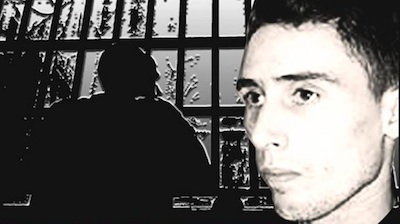
Six republicans serving lengthy prison sentences after being arrested in Britain have been released from Portlaoise Prison after challenging the legality of their continued detention.
Brothers Aiden and Robert Hulme, Darren Mulholland, James McCormack, Anthony Hyland and Liam Grogan all argued they were entitled to immediate release due to differences between the sentencing systems in Ireland and Britain.
The six were jailed for 20 years in the late 1990s and early 2000s. They were transferred back to Ireland to serve out the remainder of their sentences and had release dates varying from September of this year to early 2016.
The men applied to the High Court in Dublin to challenge their detentions under the Irish Constitution. In a test case, Liam Grogan and Darren Mulholland argued they had fully served the sentence imposed on them in England and their continued detention in Ireland -- where, unlike England, there is no provision to be released early on licence -- was unlawful.
They also claimed that had standard Irish remission rates of 25 per cent been applied they would have been due for release some time ago.
The state did not contest the applications and a judge made declarations that their detention was unconstitutional and ordered their immediate release.
Cases involving three more republicans, who raise similar arguments, are due before the High Court next week.
COREY BACK HOME
Meanwhile, a veteran republican interned for four years without trial and banned from returning to his County Armagh home on his release from prison has had the restriction lifted.
Martin Corey returned to his home town of Lurgan on Monday, July 16th for the first time since 2010, when he was ordered to be locked up by the then British Direct Ruler on the basis of ‘secret evidence’.
Neither he nor his legal team or the public has ever been told what the so-called “closed material” consists of.
Concerns were raised after his release when it emerged that a number of severe restrictions had been placed on him including a ban on returning to Lurgan.
It is believed to be one of the first occasions that an “internal exile” restriction was placed on someone in the north. He and his legal team have also been banned from speaking to the media.
![[Irish Republican News]](https://republican-news.org/graphics/title_gifs/rn.gif)
![[Irish Republican News]](https://republican-news.org/graphics/title_gifs/harp.gif)

